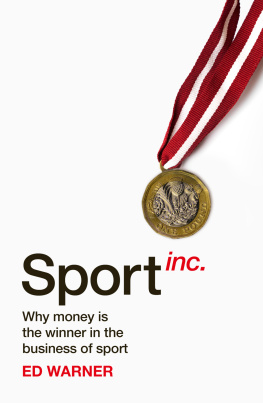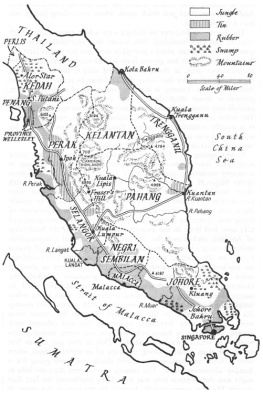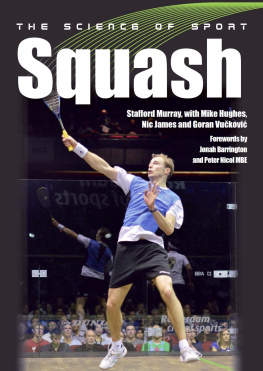ORDER OF PLAY
ABOUT THE BOOK
Why would someone pull the plug on a Premier League match?
What prompts an athlete to search for sponsorship on eBay?
How can the decision of a drinks brand CEO make or break an entire sport?
Why would a sprinter think they cant afford not to dope?
Sport Inc. reveals the behind-the-scenes finances that drive sport who gets rich and who gets left on the bench.
Through investigations into a wide range of sports, including how football agents really work, the betting industry and corruption, esports, the NFLs efforts to take over the world and the real cost of hosting events like the World Cup and the Olympics, the financial realities of our obsession with sport are exposed.
As spectators our choices make us key players in this game of riches its time to find out whos winning and whos losing.
ABOUT THE AUTHOR
Ed Warner was Chairman of UK Athletics from 2007 to 2017, and has been Chair of World Para Athletics for the International Paralympic Committee since 2011. He ran the successful bid to stage the 2017 World Athletics Championships in Londons Olympic Stadium, and was Chair of the London 2017 organising committee. Well known in sporting circles, Warner advises Crystal Palace Football Club as the Chair of its charity, the Palace for Life Foundation. He is regarded as an expert on both governance and corruption in sport. Warner is also a City financier, chairing financial businesses as a respected boardroom exponent, and a media commentator, having written a weekly business column in the Guardian and then the Daily Telegraph for a decade. He is now an occasional columnist for The Times.
For W. J. Warner, Catford Tiger
WARM-UP
The London 1948 room at the British Olympic Associations headquarters is dominated by a grainy, floor-to-ceiling photographic mural of the Olympic torch being held aloft by its final bearer before the ceremonial lighting of the flame to signal the opening of the Games. The athlete accorded this honour is a picture of purity, clad in pristine white vest and baggy shorts, not a logo in sight. Towering above the watching crowd is an enormous scoreboard, capital white letters spelling out Baron de Coubertins famous edict: THE IMPORTANT THING IN THE OLYMPIC GAMES IS NOT WINNING BUT TAKING PART. THE ESSENTIAL THING IN LIFE IS NOT CONQUERING BUT FIGHTING WELL.
De Coubertins gravestone commemorates him as the Rnovateur des Jeux Olympiques. The Games that the Frenchman restored in 1896 now bear little relation to his ideals though. The BOA may plot Team GBs quest for Olympic medals beneath this reminder of de Coubertins sporting philosophy, but winning is its thing and money the driving force. This is nothing new. Just as the ancient Greeks awarded simply a crown of olive leaves to Olympic champions, so today medals are the only formal prize for success. The early victors were rewarded lavishly when they returned home from Olympia, however, foreshadowing the riches earned by their modern counterparts. Even in the early years of the revived Games, successful athletes traded their prowess and reputations for financial gain, both on and off the track. The problem with ideals is that they dont pay the bills.
Atlanta 1996 is often cited as the nadir of the modern Olympics, commercial forces crushing what little remained of the movements supposed spirit, but those forces havent receded. If anything theyve intensified, so that Atlanta might more accurately be remembered as having given birth to the current commercialised Games. The multinational corporate sponsors have, though, adapted their behaviour sufficiently for the public to be able to embrace the continued illusion of de Coubertins Olympism, so allowing the Games to survive.
The early editions of the modern Olympics are social and economic curiosities, to be ranked alongside the distinction between gentlemen and players in cricket, the wage cap in football, and rugby union as an amateur sport in which players might find money tucked into the ends of their boots. Power has shifted away from the administrators of sports and the owners of teams to the sportsmen and -women who provide the action. Money has inevitably followed. This is not entirely a free-market economy, however. Restrictions and anomalies abound. And there is sufficient wealth in the system to attract and support a plethora of secondary and tertiary figures, from agents to consultants, advisers to sundry hangers-on. If top boxers fought solely for fun, they wouldnt attract the large entourages that they do.
The game may be the thing, but the ninety minutes on the pitch or ten seconds on the track represent a tiny fraction of the industry that supports the action. Estimates of the size of the global sports market vary wildly, partly due to definitional differences, but also to the difficulties of calculation common to all industries. One claim of a total equal to 1 per cent of the entire global economy is probably as good as any. That implies about $700 billion of sports industry revenues a year. Intuitively, this feels to me a little on the low side. But possibly thats because, like many fans, I spend far more than 1 per cent of my time thinking about sport.
This intuition is built on more than fandom, however. For just over a decade it seemed as though I spent only 1 per cent of my time not thinking about sport. I was chair of UK Athletics, the governing body in Britain for the largest Olympic sport. As a distinctly average club runner with a background as a City financier, I had replied to a job ad in the Sunday Times and found myself on the other side of the veil that screens fans from the workings of the sports that they follow. I went on to lead the successful bid to host the World Athletics Championships in London in 2017 and chaired its organising committee. Over the ten years I held the post I learned some things I wished, as a fan, I didnt have to know, but also gained an understanding of the influence that the public largely unknowingly exerts over sport.
Whatever the true scale of the sporting industry, money is its driving force. Ultimately, this finance comes from you, the sports fan. The choices you make about the sports you want to consume, and the manner in which you want to consume them, initiate the flows of money through their various brokers. The numbers involved, and the behaviours of those in control of the cash, may sometimes surprise, shock or repulse you. But they are a reflection of the power you, the fan, has in the sporting marketplace.
In Sport Inc. we will delve below the playing surface to reveal how money is pulling all the strings in todays sports market, meeting the individuals who bring the action onto our screens, plaster their logos on players shirts, advise athletes on their commercial deals and direct the infrastructure of sport. We will also encounter a sportswoman banned for doping offences, an athlete cheated out of medals and the attendant financial rewards, and a professional gambler who blows the whistle on suspected match-fixing. Finally, we will take a glimpse into a technological future in which robots take over the sporting world. A future in which esports become part of Baron de Coubertins Olympics.
















